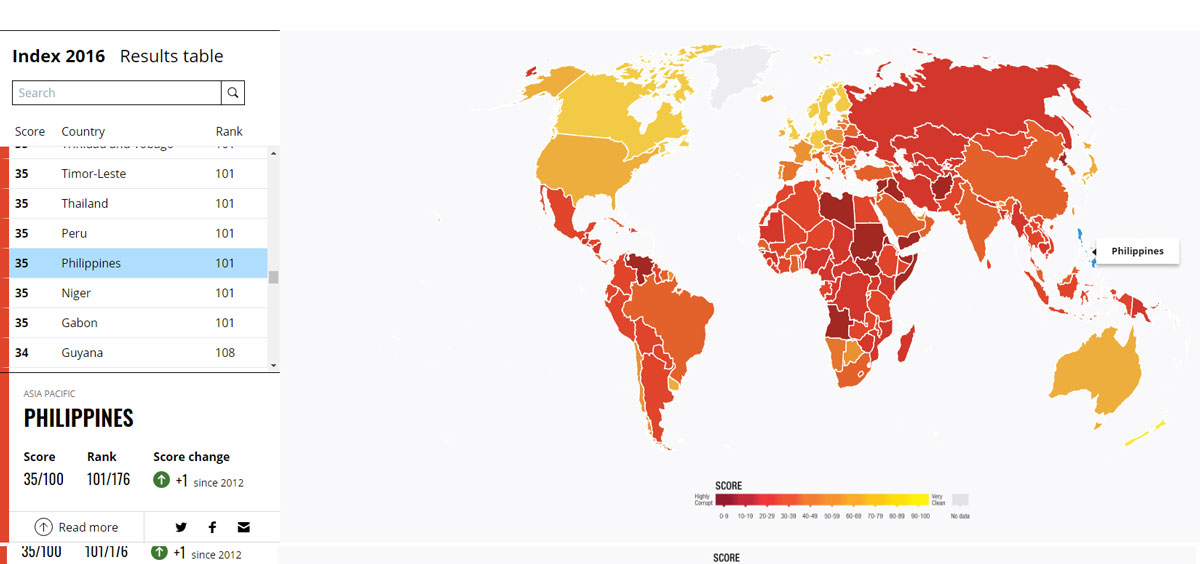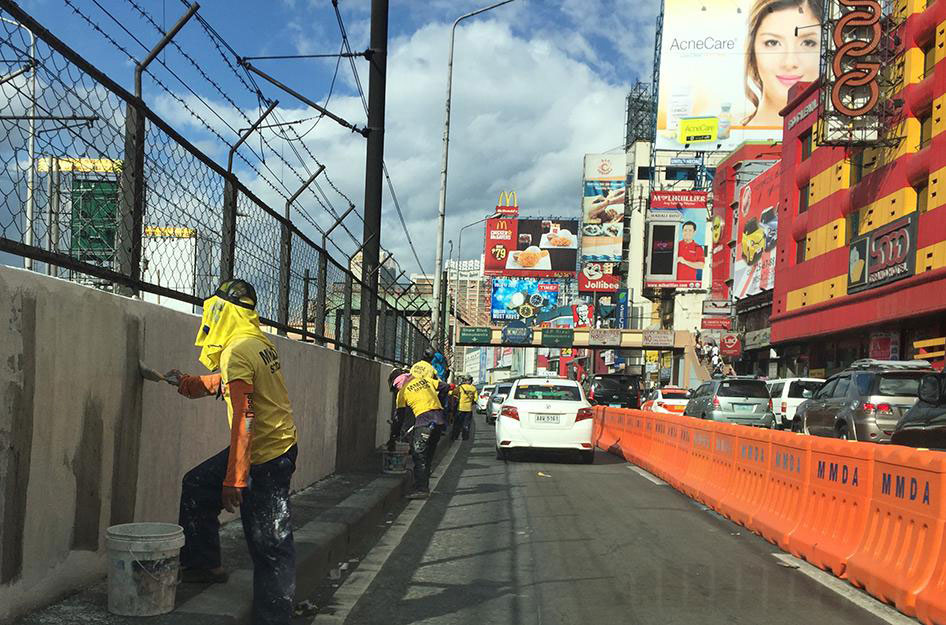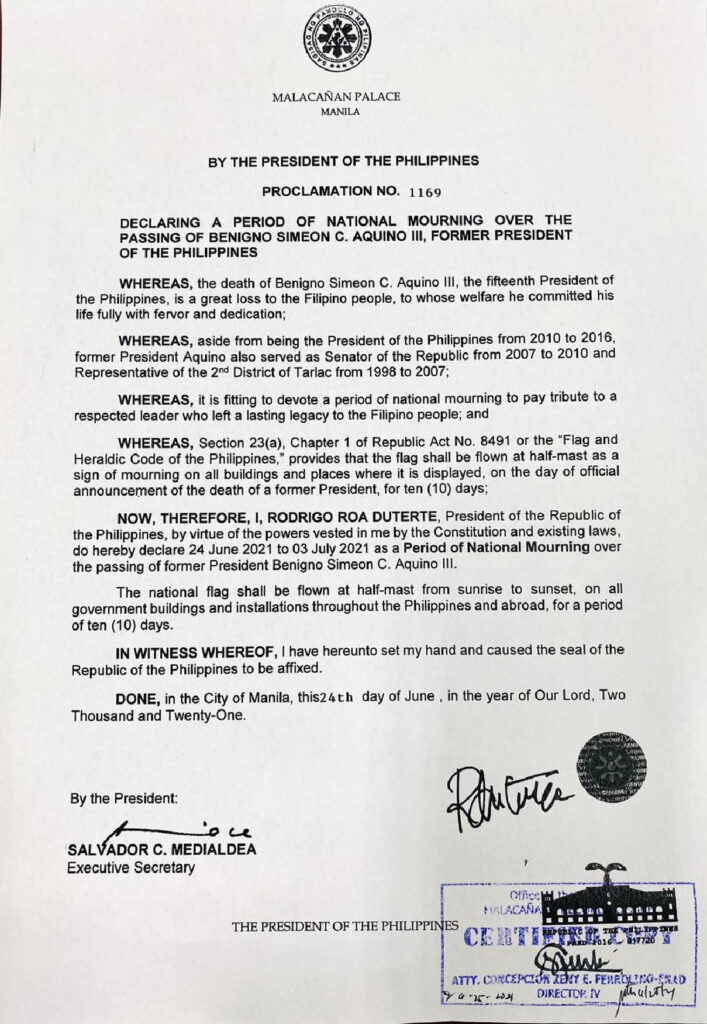Just another Noynoy tribute
by Ralph Hernandez / July 5, 2021
Much has been said about the late President Benigno “Noynoy” Aquino III after his demise last June 24. From his former speechwriter sharing a glimpse into how Aquino was as a boss with self-deprecating humor, to a poet and news presenter redefining “Noynoying”, beautiful prose about the son of two Philippine democracy icons have been written far and wide. Adjectives like “incorruptible,” “decent,” “brave,” and “diligent” have been thrown around. But perhaps one sentence that hasn’t been said enough is “thank you.” Thank you, PNoy.
We thank him for the decency that he showed while occupying the position. We thank him for his bravery in standing up to China. We thank him for his efforts to rid the government of corruption. Aside from the positives, we also thank him for the controversies, which taught the public to be critical. And he was civil about it. Thank you, PNoy.
‘Kayo ang boss ko’
Aquino kicked off his presidency with what is probably his most memorable statement. “Kayo ang boss ko, kaya’t hindi maaaring hindi ako makinig sa mga utos ninyo,” he said during his inaugural address in 2010. PNoy made it clear that he is in the service of the Filipino people, not the other way around. He vowed to remove “wang-wang” literally and figuratively, in terms of elected officials getting preferential treatment. By the end of his term in 2016, the Philippines ranked 101st in the Corruption Perceptions Index, an improvement from the 146th position in 2010. Thank you, PNoy.

But Aquino’s anti-corruption drive wasn’t without its bumps either. In 2011, he sought and successfully impeached then Supreme Court Chief Justice Renato Corona, who was painted as showing favor towards previous president Gloria Macapagal-Arroyo.
In 2014, PNoy’s Development Acceleration Program was declared unconstitutional. Aside from the government’s poor disaster response, funds for the housing assistance to the victims of Typhoon Yolanda was also chastised. It was also during his term when the PDAF or pork barrel scam was revealed. On the flipside, however, accused senators Juan Ponce Enrile, Jinggoy Estrada and Bong Revilla Jr., as well as mastermind Janet Lim Napoles were charged.
‘Attractive to investors’
Also during his inaugural address, Aquino sternly stated, “We will cut red tape dramatically and implement stable economic policies.” From being the “sick man of Asia,” PNoy transformed the Philippines to “Asia’s next Tiger economy.” Under his term, the country also got at least 22 positive ratings from major international credit rating agencies including S&P and Moody’s. Several infrastructure projects were also launched under his administration’s Public-Private Partnerships. Thank you, PNoy.
On the other hand, many hit at the Aquino administration’s inability to make the economic prosperity “felt” by all Filipinos. In 2016, then available data on the poverty rate in the country was at 26.3%, similar to the figure when he took office six years earlier. The MRT-3 frequently broke down. There was also the issue of alleged mass arrests before Manila’s hosting of the Asia-Pacific Economic Cooperation (APEC) Summit in 2015. Human Rights Watch claimed several hundred adults and children from the streets and informal settlements were detained in a bid to beautify the capital.

‘The Filipino is worth fighting for’
In what could be his lasting legacy, PNoy took up arms against China—in international court. Back in 2012, the Philippines filed an arbitration case against China at the Permanent Court of Arbitration in The Hague to assert sovereign rights in the West Philippine Sea. China was claiming several portions of the South China Sea as its own through the Nine-Dash Line. It was only in 2016 when the court ruled in favor of the Philippines, decreeing that China’s claim has no legal basis. Thank you, PNoy.
In what could also be the issue forever haunting Aquino’s administration is the “botched operation” in Mamasapano, Maguindanao between government forces and rebels that resulted in the death of 44 members of the Special Action Forces. PNoy was under fire for allowing then suspended Philippine National Police (PNP) Chief Alan Purisima to oversee the operation. Early in his presidency, Aquino also faced the “mishandling” of the hostage crisis at the Quirino Grandstand. It soured relations with Taiwan after PNoy refused to apologize for the incident.
Landmark legislation
Two years into his administration, PNoy signed the Sin Tax Law, which restructured the excise tax on alcohol and tobacco products to help fund the government’s Universal Health Care program. The Department of Finance described it as “primarily a health measure with revenue implications, but more fundamentally, it is a good governance measure.”
Later in 2012, Aquino also signed into law the Reproductive Health Bill. The controversial measure had been languishing in Congress for more than a decade before PNoy certified it as urgent, pushing both chambers to eventually pass it.
It was also under his term when the Enhanced Basic Education Act of 2013 was enacted, establishing the K-12 program. It added two more years in the basic education system, seeking to produce job-ready students out of Senior High School.
Looking ahead
Following PNoy’s passing, President Rodrigo Duterte issued Proclamation No. 1169, declaring June 24 to July 3, 2021 as a “Period of National Mourning.”

Several resolutions have also been submitted in the Senate to recognize Aquino’s accomplishments, including possibly declaring July 12 as “National West Philippine Sea Victory Day.” Senate President Tito Sotto also introduced a resolution expressing the upper chamber’s “profound sympathy and sincere condolences on the untimely demise of Honorable Benigno Simeon ‘Noynoy’ Cojuangco Aquino III.” In it, Sotto recognized PNoy for his “exemplary performance as president.”
Whether you voted for him or not, criticized or defended his policies and decisions, it won’t hurt anyone to say thank you. Thank you, PNoy.
Read also
- Noynoy Aquino dies in his sleep at 61
- Philippine National ID: What, why, and how?
- Your Vote and Your Voice Matters

Image source: Official Gazette


